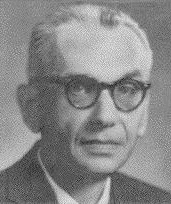In 1931 the mathematician and logician Kurt Godel proved that within
a formal system questions exist that are neither provable nor disprovable
on the basis of the axioms that define the system. This is known as Godel's
Undecidability Theorem. He also showed that in a sufficiently rich formal
system in which decidability of all questions is required, there will be
contradictory statements. This is known as his Incompleteness Theorem.

In establishing these theorems Godel showed that there are problems
that cannot be solved by any set of rules or procedures; instead for these
problems one must always extend the set of axioms. This disproved
a common belief at the time that the different branches of mathematics
could be integrated and placed on a single logical foundation.
Alan Turing
later provided a constructive interpretation of Godel's
results by placing them on an algorithmic foundation: There are numbers
and functions that cannot be computed by any logical machine.
More recently,
Gregory Chaitin
,
a mathematician working at IBM, has stressed that Godel's and Turing's
results set fundamental limits on mathematics.
These results, along with quantum uncertainty and the unpredictability
of deterministic (
chaotic
) systems, form a core
set of limitations to scientific
knowledge that have only come to be appreciated during this century.
|